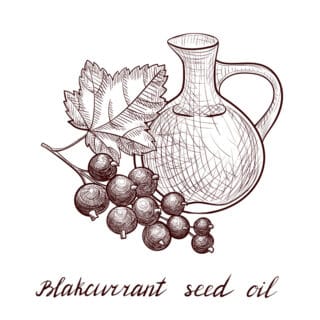
Advanced Chiropractic & Nutritional Healing Center
Suite 107
Frederick, MD 21704

More Chiropractic Care Articles
Nutrition and Breast Health

Roughly one-third of all cancer deaths are related to diet and activity. But diet alone is unlikely to be the “cause” or “cure” of cancer. Although more research needs to be done on diet and breast cancer, findings suggest that physical activity, a healthy diet (particularly one low in fat and high in vegetables and fiber), and a healthy weight can help reduce the risk of breast cancer or the cancer returning.
Recent research reveals that the healthful compounds in different foods work together to provide health benefits. The benefits of any single food must be evaluated as a part of your whole diet. Below you can read about the compounds in some commonly not eaten but necessary foods and oils that are good for your health.
Black Currant Seed Oil
This wonderful oil is a natural source of gamma-linolenic acid (GLA). GLA is one of two essential fatty acids that are necessary for maintaining normal function and growth of cells, nerves, muscles and organs.
In 2005 a study found that “Gamma-linolenic acid (GLA), in various plant oils used in herbal medicine, inhibited the action of Her-2/neu, a cancer gene that is responsible for almost 30% of all breast cancers.”
Cruciferous Vegetables
Scientific evidence supports phytochemicals such as indole-3 carbinol (I3C), which is naturally found in cruciferous foods such as kale and Brussels sprouts.
This particular group of vegetables is an excellent source of distinctive phytochemicals known as glucosinolates. Once inside the body, glucosinolates are changed into compounds.
These phytochemical compounds have been shown to protect against colon, breast, prostate, thyroid, cervical, and other cancers. Additionally, certain naturally occurring phytochemicals found in cruciferous vegetables target specific breast cancer genes.
Omega-3 Fatty Acids
Scientific data implicate omega-3 fatty acids, such as those found in oily fish, as inhibitors of development and progression of a range of human cancers. The typical American diet contains up to 20 times as much omega-6 fats as it does omega-3 fats; the optimum ratio for health is 1 1. The beneficial omega-3 fats won’t work well in protecting you from cancer if the diet contains too many omega-6 fats and little or no omega-3 fats.
Research has found that women with the highest omega-3 fats in breast fatty tissue were less apt to have breast cancer than women with the least omega-3 fats.
Fiber
Research has shown that a high fiber diet works to reduce hormone levels that may be involved in the progression of breast cancer, and that fiber increases the amount of estrogen removed from the body.

















